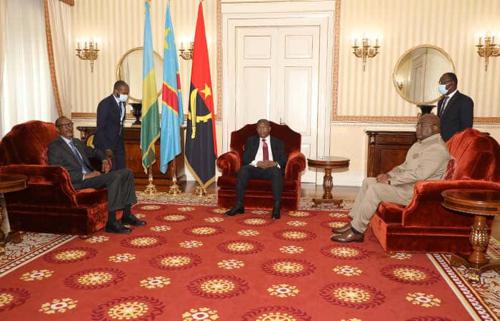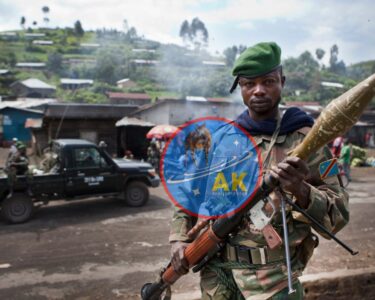
Published on August 13, 2024, by RFI
The Democratic Republic of Congo (DRC) has once again found itself at a critical juncture, as the ceasefire in the eastern part of the country, brokered under Angolan auspices in July, has failed to take hold. Set to take effect on August 4th, the ceasefire has been flagrantly disregarded, raising serious concerns about the region’s future stability. In response, Angolan President João Lourenço has taken the unusual step of personally intervening, traveling to both Kigali and Kinshasa in a bid to revive the peace process. But the pressing question remains: can he successfully persuade Presidents Paul Kagame of Rwanda and Félix Tshisekedi of the DRC to restore peace to the volatile region?
Prospects of Angolan Mediation
Angola’s mediation efforts are rooted in its own experiences with conflict and peacebuilding. As a regional power with a vested interest in stability in Central Africa, Angola’s involvement is significant. President Lourenço’s direct engagement signals the seriousness with which Angola views the situation and its potential to influence outcomes. However, the task is monumental, given the deep-seated mistrust and the complex dynamics between the DRC and Rwanda.
Kagame and Tshisekedi represent two sides of a conflict deeply intertwined with issues of regional security, ethnic tensions, and resource control. The failure to adhere to the ceasefire agreement underscores the fragility of any negotiated settlement. For Lourenço, the challenge lies not only in brokering peace but in ensuring its durability—a task that will require sustained diplomatic pressure and possibly broader international support.
Consequences of Ignoring the Ceasefire
The failure to respect the ceasefire has dire implications for the region. Firstly, it perpetuates a cycle of violence that continues to devastate local communities, leading to further displacement, loss of life, and deepening humanitarian crises. The longer the conflict persists, the more entrenched the violence becomes, making future peace efforts even more challenging.
Secondly, the ongoing instability risks spilling over into neighboring countries, exacerbating regional tensions and potentially drawing in more external actors. This could lead to a broader conflict with even more severe consequences, including a significant destabilization of the Great Lakes region.
Moreover, the disregard for the ceasefire undermines trust in diplomatic efforts and peace agreements. If belligerents perceive ceasefire agreements as non-binding or easily disregarded, future negotiations become more difficult, with parties less likely to commit to or honor agreements. This creates a dangerous precedent that could embolden other armed groups in the region, further complicating the path to peace.
Future Implications
If the current situation remains unresolved, the DRC could face prolonged conflict, with devastating consequences for its people and the broader region. The failure to establish peace not only prolongs human suffering but also hampers economic development, exacerbates poverty, and fuels cycles of violence and retribution.
Angolan mediation, while crucial, cannot succeed in isolation. It requires a coordinated effort involving the African Union, the United Nations, and other international stakeholders to apply pressure on all parties to commit to the peace process genuinely. Additionally, there must be mechanisms in place to monitor and enforce the ceasefire, ensuring that violations are met with consequences.
Conclusion
The Angolan mediation represents a critical opportunity to bring peace to the eastern DRC, but its success is far from guaranteed. The stakes are incredibly high, and the consequences of failure could be catastrophic for the region. As President Lourenço continues his diplomatic efforts, the international community must rally behind these initiatives, recognizing that lasting peace in the DRC is not just a regional concern but a global imperative.


